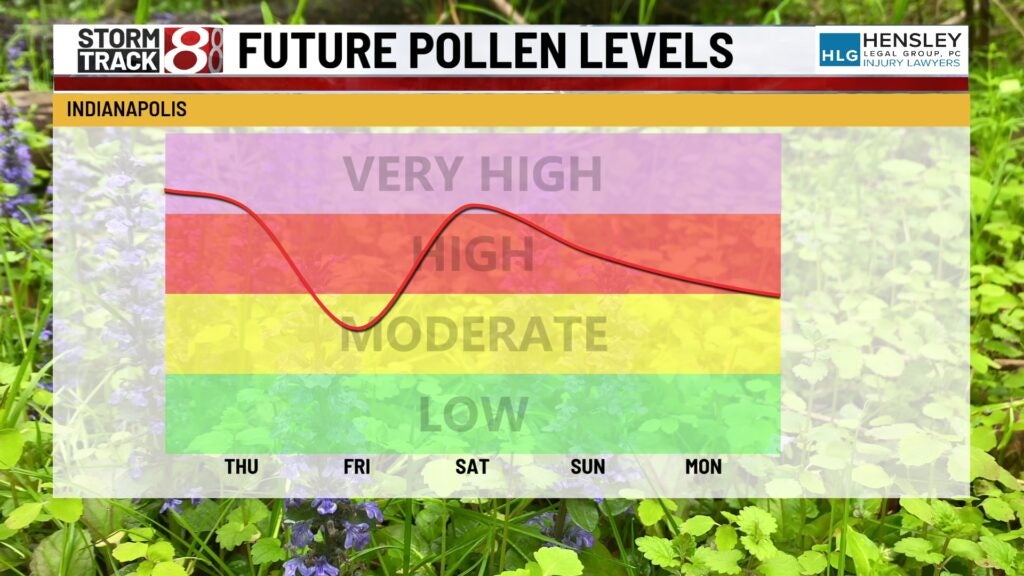Showers in central Indiana bring hope for allergy sufferers
INDIANAPOLIS (WISH) — Central Indiana residents plagued by seasonal allergies can look forward to some relief as showers are forecasted to temper the high tree pollen counts that have been causing discomfort.
According to the latest updates from StormTrack 8, rainfall expected in the coming days is likely to wash away some of the airborne allergens that have been particularly dense this season.

Current pollen tracking has indicated that tree pollen levels, primarily from maple, ash, and oak, are at a heightened level, posing a challenge for allergy sufferers. These tree types are known for their high pollen production, which can significantly impact air quality and individual health.

However, the weather forecast suggests a silver lining. Showers are expected starting Friday, with scattered rain and storms predicted to continue intermittently through the early part of next week. This precipitation is essential as it helps clear the air of pollen particles, providing temporary relief from the sneezing, itching, and other allergic reactions that many residents experience.

For those sensitive to pollen, there are several strategies to manage symptoms during peak pollen times. Experts recommend staying indoors when pollen counts are highest, typically in the morning. Keeping windows closed and using air purifiers can also help to reduce indoor pollen levels. For outdoor activities, wearing sunglasses and a hat can prevent pollen from reaching the eyes and hair. Additionally, showering after being outside can remove pollen from the skin and hair, further minimizing exposure.
As central Indiana looks ahead to a few days of rain, those who suffer from tree pollen allergies can take a breath of fresh air, literally and figuratively. The expected showers will not only bring relief from the dry conditions that exacerbate pollen dispersion but also contribute to a healthier environment as the peak allergy season continues.
By incorporating proactive measures to reduce pollen exposure and taking advantage of nature’s respite, individuals can better manage their symptoms and enjoy the transitioning spring weather with fewer disruptions.



